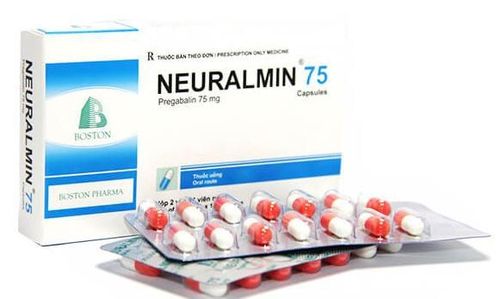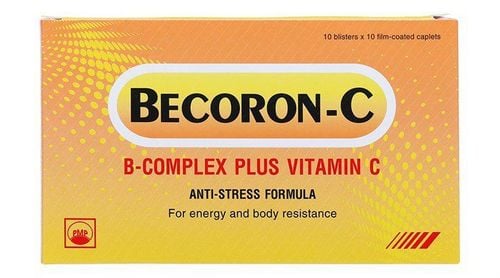This is an automatically translated article.
Currently, the rate of people suffering from neuropathic pain is increasing day by day. This disease not only seriously affects the health but also affects the quality of life of the patients.
1. What is neuropathic pain?
Normally, when your hand gets too close to the flame, nerves send signals to the brain and tell you a burning sensation. However, when you have neuropathic pain, the nerves will be damaged and not work properly, leading to the transmission of false signals to the brain, causing you to lose pain sensation when injured.
Nerve pain in each person will manifest in different ways. For some people, it often occurs in the middle of the night accompanied by sharp pain. For others, symptoms such as stinging, tingling or burning may occur throughout the day.
2. Causes of neuralgia
Nerve pain has many different causes, including:
Diabetes: more than half of people with diabetes experience nerve damage that causes nerve pain. Peripheral neuropathy: the result of aging leads to some nerves being damaged. Trauma: is also one of the main causes of neuropathic pain. Some head injuries can strain, jam, or rupture a nerve. Cancer: Patients who are undergoing cancer treatment with methods such as radiation therapy, chemotherapy can damage the nerves. Neuromuscular disease: includes diseases such as Lou Gehrig or amyotrophic lateral sclerosis. These types of diseases can over time affect and damage the nerves. Autoimmune diseases: including Guillain-Barré syndrome, multiple sclerosis, lupus, myasthenia gravis, or inflammatory bowel disease. These conditions can attack the nerves and cause nerve pain. Infectious diseases: including Herpes virus, Lyme disease, hepatitis C or HIV. Drug use or exposure to toxic substances: Medicines used to treat cancer and HIV, or exposure to substances that are toxic to the body such as lead, mercury, and arsenic can also cause nerve damage. Lack of nutrients: when the body is not fully replenished with essential nutrients, especially vitamin B12 or vitamin B6 can also lead to nerve pain

Thiếu dinh dưỡng là một trong những nguyên nhân gây đau thần kinh
3. Factors that increase the risk of neuropathic pain
Neuropathic pain can occur at any age, however a number of potential factors can increase the risk of this condition, namely:
Gender: Females are more likely to have pain. more neurologically than men The older you are, the higher the risk of disease There is a family member with neuropathic pain Pre-existing nerve damage Work characteristics: people who often do manual work hands, or heavy work Frequently playing high impact sports
4. Signs and symptoms of neuropathic pain
The signs and symptoms of neuropathic pain can vary widely. Depending on the location and type of nerve damage, symptoms will vary from person to person.
Autonomic Nerve Pain: Will make body activities involuntary or patient can't control, some symptoms you may see when you have autonomic neuropathy, including:
Muscles may feel lightheaded, dysfunctional bladder function, can't feel chest pain or a heart attack, too little or too much sweat, constipation, dry mouth or eyes, sexual dysfunction, motor nerve pain Movement: Severely affects the body's ability to control motor activities. Some of the symptoms that you may easily notice include: convulsions, muscle atrophy, muscle weakness, loss of balance or paralysis of the limbs.
Sensory neuralgia: causes the patient to lose perception of pain or other sensations. Some symptoms of damage to the sensory nerves include:
The body is too sensitive Experiencing invisible trauma (injuring yourself without realizing it) A feeling of stinging, tingling or burning sensation or numbness in the fingertips Activities such as typing, tying shoes or knitting become difficult Feeling dull when touching objects around In addition, nerve pain can seriously affect Important to the patient's sleep, especially at night, the pain will become more uncomfortable and intense. When you touch the back of the bed or lie down, there is also pain. If neuralgia occurs for a long time and affects the quality of sleep; It is best to see a doctor as soon as possible for timely diagnosis and treatment.
If left untreated, nerve damage will tend to worsen over time. The disease usually begins in the nerves furthest from the brain and spinal cord, and can then travel to the legs and arms. However, you can completely control and treat nerve damage medical conditions with the right lifestyle changes and treatment.

Đau dây thần kinh vận động có thể gây co giật
5. Neuropathic pain treatment
5.1. OTC treatments
Over-the-counter pain relievers may be the first line of treatment your doctor recommends for pain relief from nerve damage. These include nonsteroidal anti-inflammatory drugs (NSAIDs) — such as ibuprofen, or other pain relievers — such as acetaminophen or prescription drugs. Other treatment options include pain creams, ointments, oils, gels, or sprays that are used on the skin.
5.2. Prescription drugs
Currently, there are many prescription drugs that can help with nerve pain. Doctors may prescribe anti-depressants or anti-epileptic drugs to relieve pain caused by the disease.5.3. Natural treatments
In addition to the use of pain medications to treat neuropathic pain, patients can choose complementary or alternative treatments to improve symptoms of the disease. Studies have shown that acupuncture can reduce nerve pain. In addition, in certain cases, neuralgia is caused or aggravated by a vitamin B12 deficiency; Therefore, patients can supplement this vitamin according to the dose prescribed by the doctor.
In addition to strictly following the doctor's treatment instructions, patients can take a number of other methods to combat chronic pain, among them are changing lifestyle habits. Exercise regularly, keep a reasonable weight and improve your diet: low in fat, rich in vitamins, and limit the use of stimulants such as alcohol and beer.
Nerve pain can leave many complications for sufferers, so it is very important to examine and detect nerve pain. At Vinmec International General Hospital, it has been implementing a general health check-up package, which includes a neurological examination to detect many related diseases. With a system of facilities, modern equipment and a team of medical and neurologists at home and abroad, they will give the best treatment advice to patients.
Customers can directly go to Vinmec Health System nationwide for medical examination and treatment or contact the hotline HERE for support.
Reference source: webmd.com













